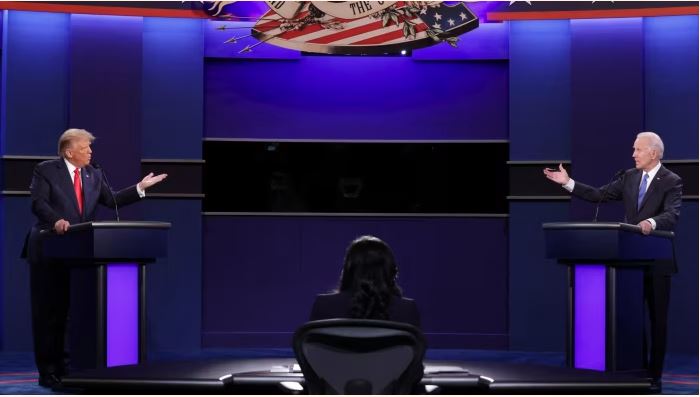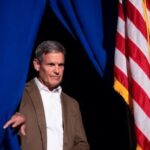First Presidential Debate Puts Biden and Trump in the Spotlight
The political stage is set for President Joe Biden and presumptive Republican nominee Donald Trump as they gear up for their first debate on Thursday, June 27. This marks the beginning of two crucial debates ahead of the fiercely contested US presidential election on November 5.
During the 90-minute debate, both candidates will tackle a spectrum of urgent issues including immigration, inflation, abortion rights, and ongoing conflicts in Ukraine and Gaza. Their ability to articulate clear positions on these topics will be crucial in swaying undecided voters.
Age will be a significant focus during the debate, with Biden, aged 81, and Trump, aged 78, being the oldest candidates ever to run for the US presidency. Voters will closely assess their physical and mental fitness for the demanding role. Political strategist Rina Shah stressed the importance of demonstrating “strength, vigor, [and] vitality,” highlighting that their performance will be closely scrutinized by the electorate.
In recent weeks, Biden has faced criticism from Democrats over viral videos showing moments where he appeared to freeze or appear lost at significant events. The debate presents Biden with an opportunity to challenge these narratives. Kyle Kondik, managing editor of Sabato’s Crystal Ball, noted that while Biden is not renowned as a powerful orator, low expectations might work in his favor if he surpasses them. Kondik stated, “For Democrats, there’s always concern that Biden – not known as a strong public speaker – could show his age and confirm fears about him. But the low bar for a good performance could benefit him.”
This debate holds particular significance for Trump, marking his third presidential bid. Having previously served from 2017 to 2021 and having lost to Biden in 2020, Trump faces pressure to clearly define his policy positions. Hans Noel, associate professor of government at Georgetown University, pointed out Trump’s tendency to avoid detailed follow-up questions compared to Biden’s more adept handling of nuanced policy inquiries. Noel observed, “Trump generally avoids answering a lot of follow-up questions about specific policy areas. Biden, on the other hand, usually handles these well. He’s demonstrated an ability to understand the nuances.”
Speculation surrounds the conservative agenda Trump might pursue if re-elected. The Heritage Foundation’s extensive policy document, Project 2025, proposes sweeping changes including abolishing the Department of Education and enhancing presidential control over the Department of Justice. Such proposals have raised concerns among moderate Republicans and Democrats.
Political strategist Rina Shah cautioned that implementing such a conservative vision could have detrimental effects. “There’s talk about expanding rights for certain groups, not restricting them. Yet, these proposals aim to limit rights, which should concern Americans,” Shah remarked. One particularly contentious proposal involves replacing non-partisan civil servants with Trump loyalists, raising fears about expanded presidential powers. Noel added, “The goal to dismiss and replace more government officials with not just Republicans, but those personally loyal to Trump, is seen as what prevented him from achieving his goals last time.”
In response, the Biden administration has fortified federal job protections to safeguard against potential extensive changes under a new administration. With just over four months remaining until the election, both candidates face immense pressure to deliver a compelling performance in the first debate to bolster their campaign momentum.



